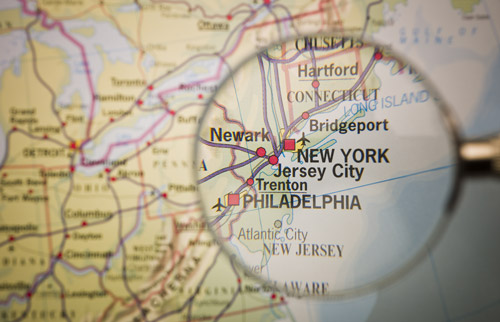New York General Adult-Use Cannabis Licensing – Applications Open Oct 4th!

New York’s Office of Cannabis Management (OCM) announced an historic forward for its cannabis program this morning during the monthly Cannabis Control Board Meeting when they approved a resolution to finalize adult use regulations and announced the long awaited application dates for its general adult use licensing window.
The OCM plans to begin accepting applications on October 4th, 2023 and the application window will remain open for 60 days for Retailer, Cultivator, Cooperative, Processor, and Distributor Licenses.
In addition to the launch of general adult use licensing, the OCM also announced a groundbreaking expansion of the state’s medical program. The Cannabis Control Board voted to reopen applications for Registered Organization with Dispensing (ROD) licenses. This will be the first time that applications for medical dispensaries in the state will be open since the origin of the program in the state in 2015.
New York State Cannabis License Application Dates
New York State cannabis applications will open to the public on October 4th and will be available for 60 days on the New York Business Express web portal.
In order to expedite the processing of retail dispensary applications, the OCM will begin processing retail dispensary applications 30 days after the start of the application period but will continue to accept new applications for the entire 60 day window simultaneously as they are reviewing them.
What Cannabis Licenses Are Available in New York?
Until now, the state had only issued a limited number of conditional licenses to applicants who had been personally or familiarly affected by non violent cannabis related arrests in their past.
Now for the first time, applications will be open to the general public for the following license types.
New York General Adult Use License Types:
- Adult-Use Nursery Licenses (outdoor, mixed light, and indoor)
- Adult-Use Cultivation (outdoor, mixed light, indoor, and combined)
- Adult-Use Cooperatives (Cultivation, Cultivation and Processing, Cultivation Processing and Distribution)
- Adult-Use Processors
- Adult-Use Distributors
- Adult-Use Microbusiness
- Adult-Use Retail
It is important to note that there are strict limitations on the number of licenses an individual can hold interest in, and holding interest in some license types restrict an individual from applying for another type of license.
Adult-Use Nursery Licenses (outdoor, mixed light, and indoor)
“Nursery” means a licensee that produces only clones, immature plants, seeds, and other agricultural products used specifically for the planting, propagation, and cultivation of cannabis by licensed adult use cannabis cultivators, microbusinesses, cooperatives and registered organizations. A nursery license authorizes the production, sale and distribution of clones, immature plants, seeds, and other agricultural products used specifically for the planting, propagation, and cultivation of cannabis.
An adult-use cultivator may only hold one nursery license.
Adult-Use Cultivation (outdoor, mixed light, indoor, and combined)
“Cultivation” means the growing, cloning, harvesting, drying, curing, grading, and trimming of cannabis plants. A cultivator’s license authorizes the acquisition, possession, distribution, cultivation and sale of cannabis from the licensed premises of the adult-use cultivator to a licensed processor.
No person may own more than one cultivator license. A cultivator may own one processor license and one distributor license, solely for the distribution of their own products. Cultivators may not own or have any interest in a licensee in the cannabis retail tier.
Adult-Use Cooperatives (Cultivation, Cultivation and Processing, Cultivation Processing and Distribution)
A cooperative license authorizes the acquisition, possession, cultivation, processing and sale from the licensed premises of the adult-use cooperative by such licensee to duly licensed distributors, on-site consumption sites, registered organization and/or retail dispensaries; but not directly to cannabis consumers. A cooperative license must be organized under cooperative principals, including but not limited to being democratically controlled by the members themselves, on the basis of one vote per member.
No person may own more than one cooperative license. Cooperatives may not own or have any interest in a licensee in the cannabis retail tier.
Adult-Use Processors
“Processor” means a licensee that extracts concentrated cannabis and/or compounds, blends, extracts, infuses, or otherwise manufactures concentrated cannabis or cannabis products. A processor’s license authorizes the acquisition, possession, processing, and sale of cannabis from the licensed premises of adult-use cultivators to licensed distributors.
No person may own more than one processor license. A processor may also obtain a distributor license, solely for the distribution of their own products. Processors may not own or have any interest in a licensee in the cannabis retail tier.
Adult-Use Distributors
“Distributor” means any person who sells at wholesale any cannabis product for which a license is required. A distributor’s license authorizes the acquisition, possession, distribution and sale of cannabis from the licensed premises of a licensed adult-use processor, adult-use cooperative, microbusiness, or registered organization authorized to sell adult-use cannabis, to duly licensed retail dispensaries, on-site consumption sites and adult-use delivery licensees.
No person may own more than one distributor license. Distributors may not own or have any interest in a licensee in the cannabis retail tier.
Adult-Use Microbusiness
“Microbusiness” means a licensee that may act as a cannabis producer for the cultivation of cannabis, a cannabis processor, a cannabis distributor, and a cannabis retailer. A microbusiness license authorizes the limited cultivation, processing, distribution, delivery, and sale of their own adult-use cannabis and cannabis products.
No person may own more than one microbusiness license. No microbusiness can have an interest in or own any other adult-use license type.
Adult-Use Retail
“Retailer” means any person who sells at retail any cannabis product, to cannabis consumers. A retail dispensary license authorizes the acquisition, possession, sale and delivery of cannabis from the licensed premises of the retail dispensary by such licensee to cannabis consumers.
The newly approved regulations regulations allow a retail dispensary licensee to identify a distinct area on their premises where people can use the cannabis products they have purchased at the dispensary. This area, called a Limited Retail Consumption Facility, must be inside the same building as the dispensary, or on an adjacent parcel. Entry must be restricted to only people 21 years of age and older.
No person may own more than three retail dispensary licenses. Retail licensees may not own or have any interest in a licensee in the cultivation, processing or distribution tier.
Real Estate Requirements for NY Cannabis License
Similarly to how NJ handled its licensing process, NY allows applicants to apply either with or without real estate. Applicants without a predetermined location seeking a license would be provided a provisional license after submitting initial information regarding their business and the applicant’s eligibility.
Provisional licensing will lower up-front costs for applicants and allow them a form of “pre-approval” by the State as they seek a location for their cannabis business, raise funds and capital, and build their teams. Provisional Licensees must submit all outstanding information required for final operational license approval within twelve (12) months of receiving a provisional license unless otherwise approved by the Board.
While provisional licensing does have the upside of lowered initial costs and commitments, applicants may lose out on desired locations due setback requirements between retailers. In larger jurisdictions with a population of more than 10,000 residents, dispensaries must be at least 1,000 feet from each other, and this distance is further increased to 2,000 feet.
“Due to this risk of being buffered out of your desired area, we strongly recommend securing real estate as soon as possible.“
– Meilad Rafiei, CEO WeCann
“True Party of Interest” Ownership Restrictions
No true party of interest can hold interest in a supplier type license (cultivator, processor) and a retailer. A true party of interest is defined as either: Individuals with a controlling interest, individuals with a share of ownership (including stockholders), individuals with a financial interest in the business including goods and services providers exceeding 10% of gross revenue; 50% of net revenues; or $250,000 of interest.
This True Party of Interest restriction also applies to out of state supply side operations. This means that to apply for a retail license in NY, you must not hold either direct or indirect interest in a cannabis supply side (cultivator or processor) license in another state as well.
This does not include apply to landlords who receive payment for rent on a fixed basis, or to consultants and brokers who contract with the applicant or licensee to receive a commission for the sale of the business or real property.
Timeline and Application Window
October 4th – December 4th
Applications will open to the public on October 4th and will be available for 60 days on the New York Business Express web portal. In order to expedite the processing of retail dispensary applications, the OCM will begin processing retail dispensary applications 30 days after the start of the application period but will continue to accept new applications for the entire 60 day window simultaneously as they are reviewing them.
NY Social and Economic Equity (SEE) Qualifications
As a part of its commitment to increasing access of cannabis licenses to individuals who have lived in communities disproportionally impacted by cannabis prohibition and other underrepresented groups, including minority- and women-owned businesses, distressed farmers, and service-disabled veterans.
NY is providing additional resources to Social and Economic Equity (SEE) Applicants. Applicants can qualify to be SEE applicants if they meet any of the following criteria:
- They are an individual from a community disproportionately impacted by the enforcement of cannabis prohibition;
- a minority-owned business;
- a women-owned business;
- a distressed farmer; or
- a service-disabled veteran owned business.
- Any person seeking to contribute to sole control of the applicant must hold at least 1% equity share in the business.
- If sole control of the applicant is held by a woman who is also a minority-group member or women who are also all minority group members, the applicant may qualify as a minority owned business, a women-owned business, or both.
NY is setting a goal of awarding 50% of all cannabis licenses to SEE applicants. In addition SEE applicants will have a 50% reduction in all application and registration fees and have access to support on their applications from state resources.
Local Approval for Retail and Consumption Lounges
Local municipalities had an opportunity to opt out of retail and consumption lounges. Additionally, local municipalities may offer a recommendation to the Office of Cannabis Management about whether or not a retail or consumption lounge license applicant should be accepted, however the final decision on licensing is handled at the state level.
New York Cannabis License Applications – Start Here!
Contact us for expert assistance preparing your application to best ensure local and state approval.
We also recommend you reach out to our team for more information on which jurisdictions allow each cannabis use and for sourcing top real estate in New York to improve your application.
We’re available to help!





